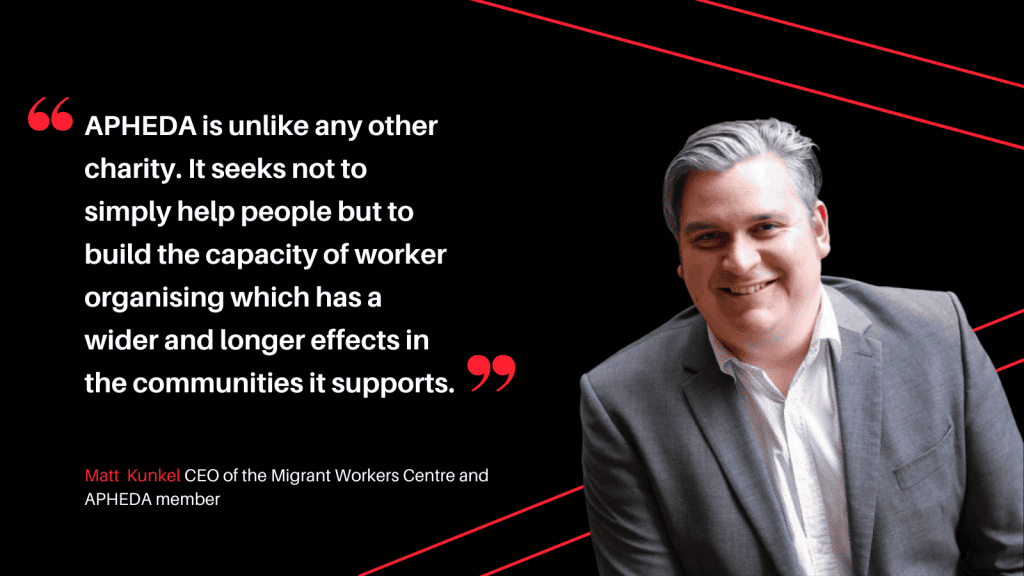Matt Kunkel is the CEO of the Migrant Workers Centre in Victoria and has led the organisation since its inception in 2018. Before that, he has worked in a range of roles in the trade union movement. Most recently at the Victorian Trades Hall Council and before that, he spent 8 years as a union organiser and industrial officer for the Liquor, Hospitality and Miscellaneous Workers’ Union, then United Voice, where he worked across a varied range of industries with high density of migrant workers, including cleaning, security, laundries and manufacturing.
What does it mean to you to be union?
Hope. The only way forward to a better world is for workers to join together in union. Being union is a commitment to each other and to those that come after us. A commitment to fight for a better world that puts people and planet above profit.
What does it mean to you to be APHEDA?
I see my APHEDA membership as no different from my union ticket. It’s like the other side of the same coin. I remember the form being in my induction kit at the Liquor, Hospitality and Miscellaneous Workers’ Union. APHEDA is unlike any other charity. It seeks not to simply help people but to build the capacity of worker organising which has wider and longer effects in the communities it supports.
Why is building internationalism in Australia important?
With apologies to Billy Bragg, rights are merely privilege extended, unless enjoyed by all workers across the world. It’s our obligation in a country where we benefit from the strength and militancy of our union forebears, to engage in the struggle of those seeking to enjoy the same rights and conditions. Our struggle is shared and solidarity has no borders. Bosses try to divide us on racial or religious lines but we must never fall for it.
What part of APHEDA’s work are you most connected to or proud of and why?
I really admire APHEDA’s work alongside the courageous activists seeking to eradicate asbestos. Our movement fought hard to ensure that all workers and their families in Australia were kept safe. As countries with strong unions banned asbestos, the bosses shifted the risk and the misery of mesothelioma to South-East Asia. No worker is truly safe from asbestos until all workers are safe, and its use is banned across the globe.

